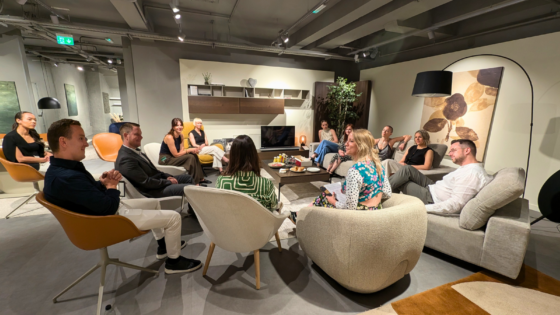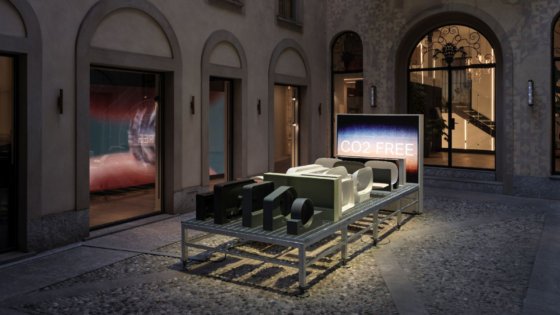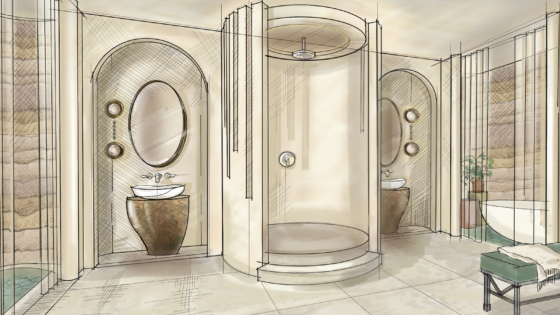Ahead of joining editor Hamish Kilburn on the Innovation Stage at the Independent Hotel Show for a panel discussion about sensory design on October 4, Tom Middleton speaks to Hotel Designs about the role of sound design in sleep performance, hospitality and design…
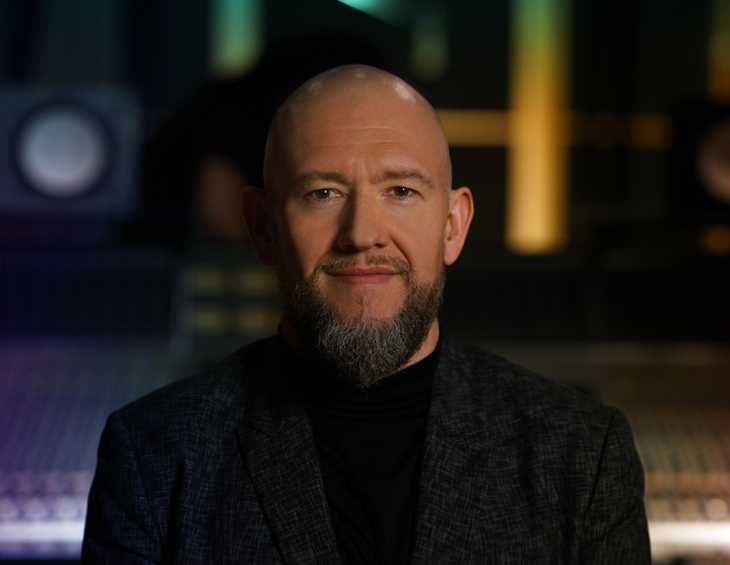
Tom Middleton is no stranger to the Hotel Designs brand. The sound architect is a true polymath who wears many hats in the hospitality industry. He is a pioneering electronic musician, an award-winning sound designer, a DJ and producer, a certified sleep science coach, trained in mental health first aid, and is Co-Chair on the AFEM Health Group.
In his music career, which took place prior to his journey in wellness and wellbeing, he toured the world and performed to millions, observing the positive affects of sound while sharing the stage with the likes of Mark Ronson, Lady Gaga and Kanye West.
Most recently, while the industry became fuelled by collaborations, Middleton began exploring sound’s role in other arenas. In addition to working with leading brands, designers and architects, last year he joined an exclusive panel discussion with Hotel Designs LIVE that started the conversation around sensory design in hospitality.
Further to this insight, Middleton is preparing to join a panel discussion, moderated by editor Hamish Kilburn, at the Independent Hotel Show that will direct the narrative towards how hotels can use the senses in a new era of authentic hospitality. Before that session, we spoke to the sound architect about sleep performance.
Hamish Kilburn: How did you first become interested in the topic of health, wellness and sleep in relation to music?
Tom Middleton: Initially from honest feedback from composing pioneering ambient music in the ’90s. People reported using our music to help them relax, sleep, give birth (and – voted best album for ‘the bedroom’!) and even process trauma.
At the peak of my career touring with a relentless international travel schedule my sleep became severely disrupted. I trained as a sleep science coach to better understand sleep architecture and hygiene and then integrate science to inform music designed to help address human problems such as de-escalating anxiety and stress, improving sleep, boosting productivity and performance.
I’m currently on a neuroscience and psychology of music Masters program to deepen my knowledge in this fascinating area that can add tremendous and measurable value.
HK: How has the ‘functional music for wellness’ industry evolved in recent years?
TM: As a pioneer in this area, I’ve been gratefully observing exponential interest, investment and growth in this area of functional music with more and more apps, platforms and experiences delivering wellness and health focused solutions.
I am delighted that the sleep music I have designed for the #1 mindfulness app Calm is helping millions sleep better every night. Beyond domestic and hospitality sectors, I’ve personally expanded into providing science-based, bespoke music, sounds and sound rituals for functional beverages, functional skincare, mobility, workplace, education and healthcare… and it won’t be long before we get to space travel.
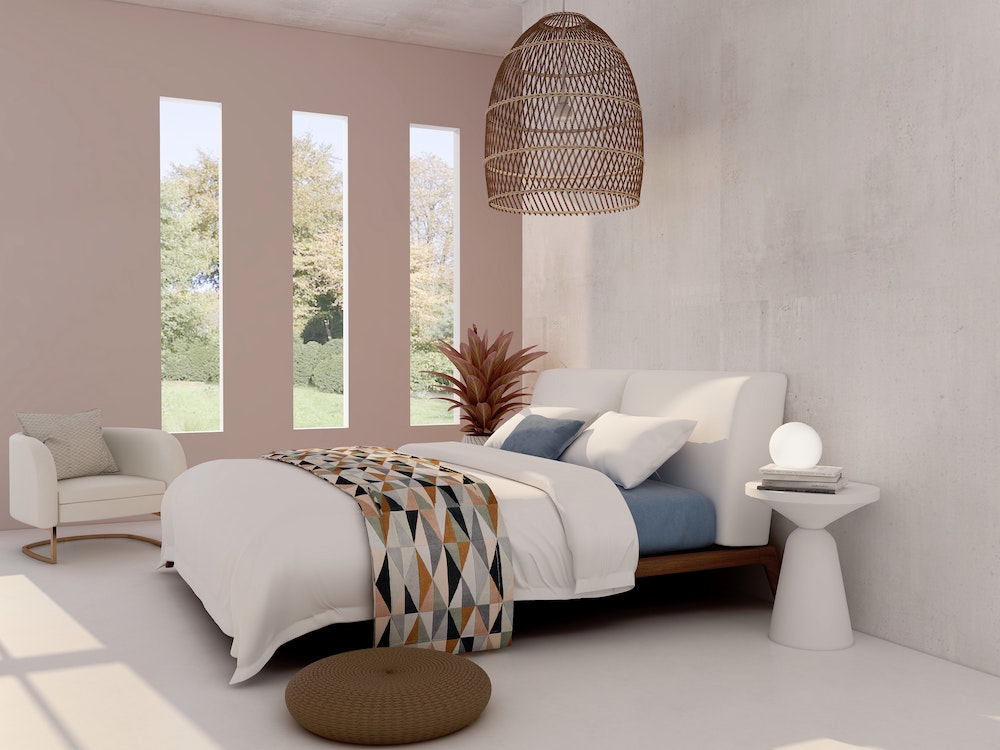
Image credit: Unsplash/Collov Home Design
HK: Are you seeing growing interest in sound design from hotels and hospitality businesses?
TM: It’s finally starting to be taken more seriously, but still a way off the perceived value of say interior and lighting design. It’s taking a long time, as the industry is still stuck in the mindset of background music playlists, mostly as an afterthought and always for the lowest possible price.
For our business it has never been busier with many projects in various stages of development, and we’re looking at retrofitting solutions as well as more future-facing connected/IoT/integrated smart sensory room solutions.
HK: What makes good sound design for a hotel environment?
TM: Taking a ‘humans first’ approach to design – thinking about everyone using the space is so important. A multi-sensory, integrated, congruent, considered, empathetic design approach. Aligned with the core values, and complimentary to the interior and F&B, appropriate to emotionally connect with the guest personas.
Designers should think about the human/guest journeys and the micro moments experienced within environments that could be enhanced with surprising, delightful, beautiful, engaging, magnetising, useful, or therapeutic sound-scaping.
HK: What feedback has there been from consumers so far?
TM: So positive! It’s wonderful when someone says, ‘I had the best night’s sleep’, or ‘it helped reduce my anxiety and stress levels’, or hearing it helped someone focus before a meeting.
One fun aspect that gained a lot of talk on TripAdvisor was the soundscapes I designed for the lifts within Yotel New York. The challenge was that lifts are enclosed spaces, where guests often feel awkwardly silent. The solution was to take cultural cues from New York’s theatre district, classic TV, film and musicals. As a result, we were able to transform this typically uncomfortable 15 seconds avoiding eye contact to pure delight and joy as a positive memory was triggered – think Pink Panther theme tune or the Pinball Song from Sesame Street – as people walk out of the lifts smiling, chuckling or humming along.
“Science shows that sound, music and noise reduction strategies can all help you sleep better.” – Tom Middleton, Sound Architect.
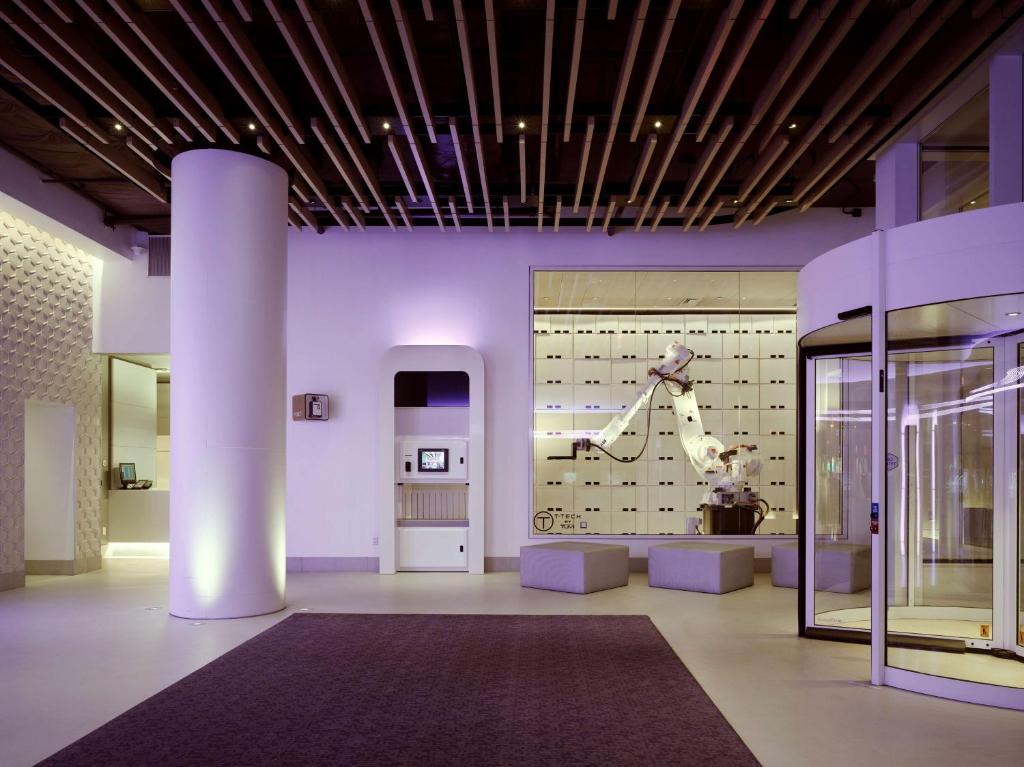
IMage
HK: Why should hoteliers invest in sound design?
TM: If hotels are selling sleep, then ensure you can deliver the promise of the best sleep ever. Science shows that sound, music and noise reduction strategies can all help you sleep better.
A congruent, focused wellness strategy for sound, integrated with the other sensory elements, tuned or personalised for the specific environment, time, geographic location and the people using it will add measurable value to a hospitality experience and boost the bottom line.
It’s now a matter of corporate social responsibility to put the mental, physical and emotional health and wellbeing, as well as entertainment and performance, at the forefront of guest experience.
Tom Middleton, Hamish Kilburn, Mark Bruce (Director, EPR Architects) and Marie Soliman (Co-Founder, Bergman Interiors) will join the Innovation Stage at the Independent Hotel Show on October 4 to discuss, in depth, the sensory experience in hotel design and hospitality.
Main image credit: Tom Middleton

